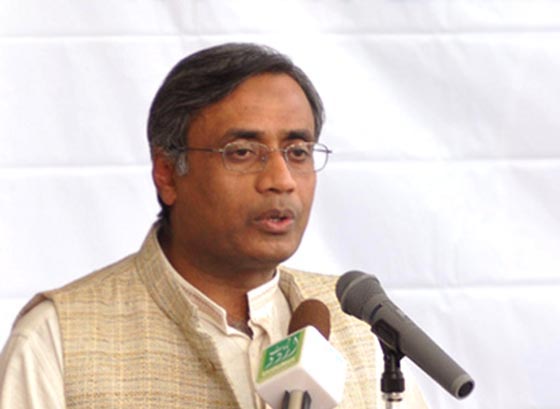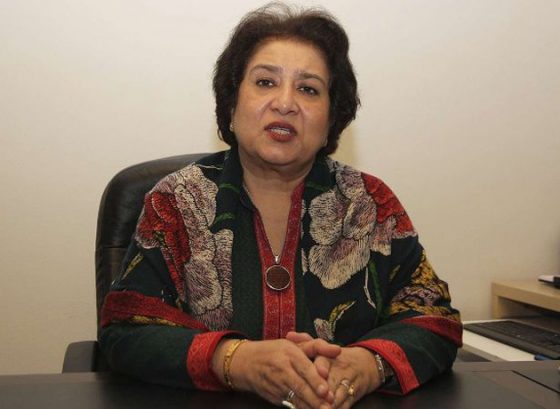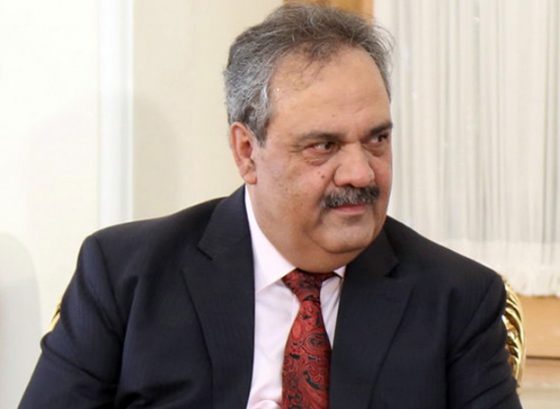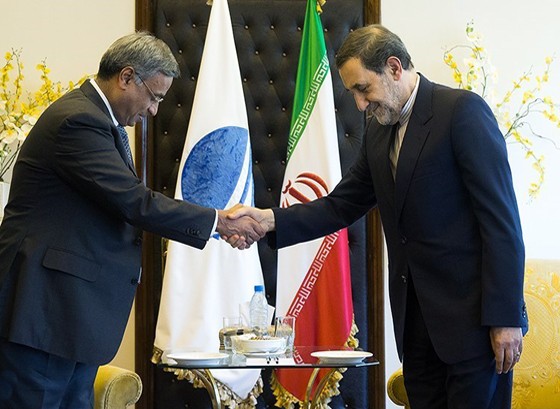Pakistani envoy: Positive outcome of Iran-P5+1 talks good chance for IP project

Pakistan Ambassador to Tehran, Noor Muhammad Jadmani, said in Tehran on Sunday that Islamabad is highly committed to the IP (Iran-Pakistan) gas pipeline, also known as the Peace Pipeline, which is a 2,775 km long pipeline designed to carry natural gas from Iran to Pakistan, AVA Diplomatic reports.
“Pakistan has times and again conveyed its commitment to the project … This project remains under our consideration,” said on the sidelines of ceremony of marking Youm-e-Pakistan or Pakistan Resolution Day, also Republic Day.
He said the good news on the positive outcome of Iran-P5+1 negotiations gives an impetus to the two neighbors’ resolve for implementation of the “very important” pipeline project.
“There were global situation which had affected the implementation of the pipepline. This (the positive outcome of the Iran-P5+1 talks) will help us in getting few things which were coming into way of the Iran-Pakistan gas pipeline to be cleared and we will move forward.”
He reiterated that both Iran and Pakistan are committed to the project. Pakistani Commerce Minister Khurram Dastgir Khan said recently that Pakistan has not abandoned the IP gas pipeline project.
Dastgir Khan said Pakistan will pursue the IP project after the removal of anti-Iran sanctions.
“A gas pipeline that is going to be laid from [the Pakistani port city of] Gwadar to [the port city of] Nawabshah can be extended by 11 kilometers to Iran,” the Express Tribune quoted Khurram Dastgir Khan as saying recently.
In 1995, Iran and Pakistan signed an agreement for the construction of the gas pipeline. Later, Iran made a proposal to extend the pipeline from Pakistan into India. In February 1999, an accord between Iran and India was signed.
But due to the US pressure, India withdrew from the project in 2009.
Iran has already built its 900-kilometer share of the pipeline on its own soil and is waiting for the 700-kilometer Pakistani side of the pipeline to be built.
The IP pipeline aims to help Pakistan overcome its growing energy shortage at a time when the country of over 180 million people is grappling with serious energy shortages.
The United States has long been threatening Islamabad with economic sanctions if it goes ahead with the plan.
PAK COMMERCE MINISTER TO VISIT IRAN
The ambassador said the Pakistani minister of commerce is going to visit Iran.
He said there are efforts underway to fix the date of the visit.
“Pakistani Commerce Minister Khurram Dastgir Khan is expected to visit Iran; we work on the date … Exchange of visits is a regular feature of our very close relations that we have.”
ISALAMABAD HOPES IRAN-P5+1 COMPREHENSIVE ACCORD WILL HELP REGIONAL STABILITY
To a question on the Iran-P5+1 Lausanne talks, Jadmani said in connection with the Lausanne talks, Pakistani Foreign Ministry issued a statement.
He hoped that the two sides’ comprehensive accord will contribute to regional stability.
“Now we are happy,” said the Pakistani envoy, adding that Pakistan has been maintaining the stance that nuclear issue should be peacefully resolved through negotiations.
He said, “We are expecting both states to work towards the June deadline; both sides will work to realize the comprehensive agreement which as we look at, it will contribute to the regional stability.”
At the end of eight days of sensitive nuclear negotiations in the Swiss city of Lausanne on Thursday, Iran and the 5+1 states – the United States, France, Britain, Russia, and China plus Germany – issued a joint statement, saying that no Iranian nuclear facility will be shut down or suspended and that all sanctions against the Islamic Republic will be lifted.
The joint statement is a sign that Iran and its negotiating partners have come to a mutual understanding over Tehran’s nuclear program and will work to draw up a final accord by the end of the self-designated June 30 deadline.
According to the joint statement, Fordow nuclear facility will be turned into a research center for nuclear science and physics. It also said the heavy water reactor in the Iranian city of Arak will remain in place but will be redesigned and updated. Iran will implement the Additional Protocol temporarily and voluntarily in line with its confidence-building measures and after that the protocol will be ratified in a time frame by the Iranian government and Parliament (Majlis(.
ISALAMABAD FIRMLY DETERMINED TO CONTINUE COOPERATION WITH IRAN IN POST-SANCTION ERA
To a question on Tehran-Islamabad cooperation in post-sanctions era, the Pakistani envoy said, “We have been working during sanctions. We are cooperating with each other; there are lot of potentials which exist between the countries; we are going to utilize them to the mutual benefit of our countries.”
PEACE IN YEMEN TO FAVOR WHOLE MUSLIM WORLD
To a question on Pakistan’s likely military contribution on Saudi call for troop buildup against Yemen, Jadmani hoped for peaceful settlement of Yemen crisis, believing that peace in Yemen is in the interest of the whole Muslim world.
He said Pakistan had already issued a statement in that connection and Pakistani parliament is to discuss situation in Yemen on Monday and Pakistan looks forward to work in a way that it could be helpful. “We are always for Islamic unity.”
Saudi Arabia has asked Pakistan for military aircraft, warships and soldiers.
JADMANI’S ADDRESS TO PAKISTAN NATIONAL DAY COMMEMORATION CEREMONY
Meanwhile, in an address to the ceremony on April 5 to commemorate the Pakistan Day, Pakistan Ambassador to Tehran, Noor Muhammad Jadmani, expressed felicitations to Iranian officials on the outcome of the P5+1 negotiations.
The Pakistani diplomat said Iran and Pakistan enjoy close cordial relations that are based on strong historic, religious, cultural ties.
He said Iranian President Hassan Rouhani and Pakistani Prime Minister Muhammad Nawaz Sharif, have similar stance on strengthening ties with neighbors in respective fields, including in field of economy.
“It provides the requisite to further build on bilateral relationship. There exists potential in a variety of areas which we could use for mutual advantage. It remains my earnest interest towards these strong brotherly bilateral ties.”
He also thanked Abdolreza Rahmani Fazli, Iranian Minister of Interior, for joining the meeting.
“I would first like to express my gratitude to you all for joining us this evening, to celebrate the Pakistan Day, which falls on 23rd March but is celebrated in April due to Nowrouz Holiday in Iran in the month of March,” said Jadmani.
“As you may know, 23rd of March is a landmark day, in the history of Pakistan … It was on this day, the Muslims of South Asia, adopted the historical Lahore Resolution, in 1940 at the site where the famous `Minar-e-Pakistan’ is located today.”
It was a momentous event, as the Resolution demanded the establishment of a separate homeland, for the Muslims of South Asia, where they could live in accordance with their cultural and intellectual aspirations, he announced in his keynote speech to the audience.
He said Pakistan is commemorating the 75th anniversary of its National Day following the historical Pakistan Resolution.
“This day reminds us of the vision of our national poet Allama Muhammad Iqbal, who presented the idea of a separate homeland for the Muslims of South Asia. Allama Iqbal is no stranger in Iran. Our Iranian brothers remember him as Iqbal Lahori (Meaning hailing from Lahore in Pakistan). They love his poetry. Indeed best of his poetry is in Persian. He, like many other elements of bilateral ties, is a link between our two Islamic countries. The vision of Allama Iqbal, historic struggle, immense sacrifice, firm resolve of Pakistan’s founding father Quaid-i-Azam Muhammad Ali Jinnah, Muslims of South Asia succeed in securing a separate homeland, our beloved Pakistan August, 1947.”
Pakistan National Day is a national holiday in Pakistan to commemorate the Lahore Resolution of 1940 and the adoption of the first constitution of Pakistan during the transition of the Dominion of Pakistan to the Islamic Republic of Pakistan on 23 March 1940 making Pakistan the world’s first Islamic republic.
The day is celebrated to commemorate the event when the Muslim League drafted the political resolution at the Minar-e-Pakistan (lit. Pakistan Tower) that called for establishing the independent federation of four provinces located in north-western region of British India on 23 March 1940.




